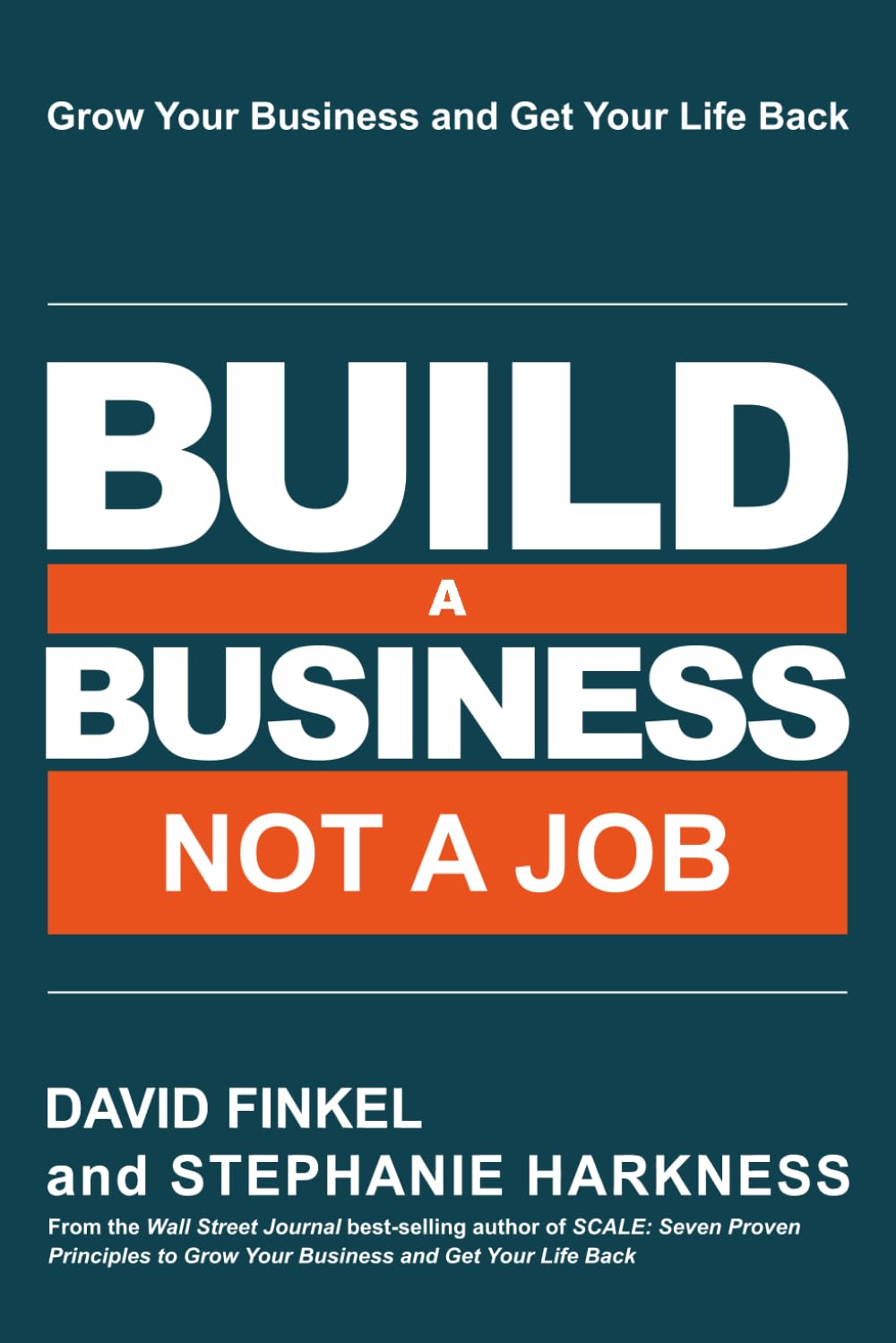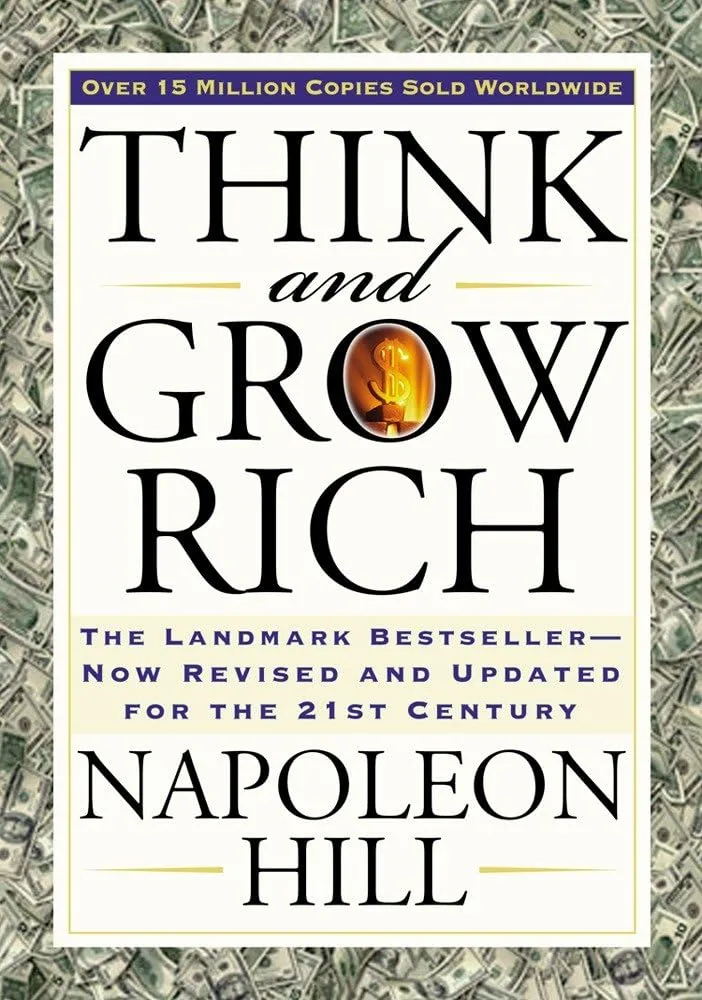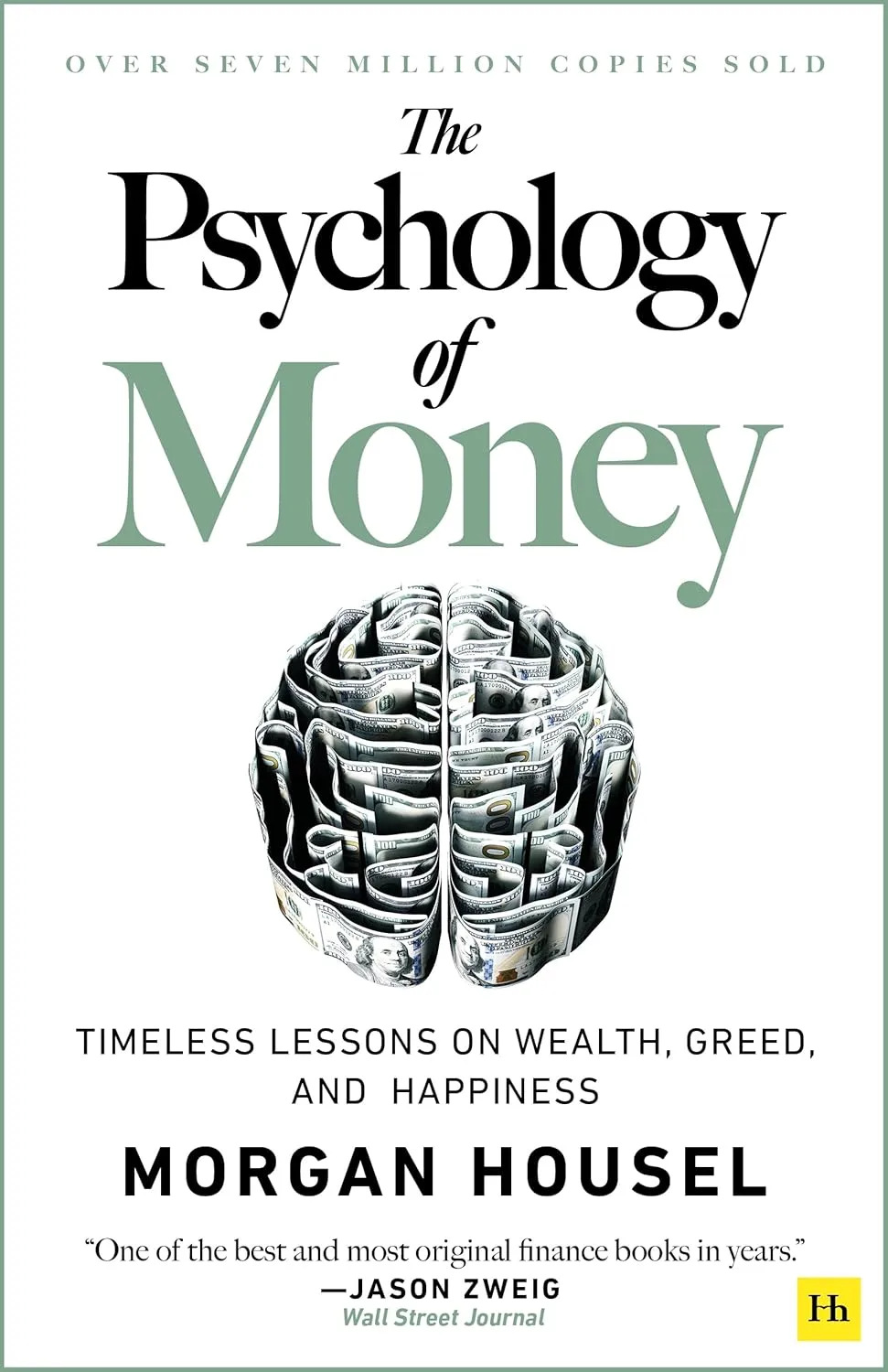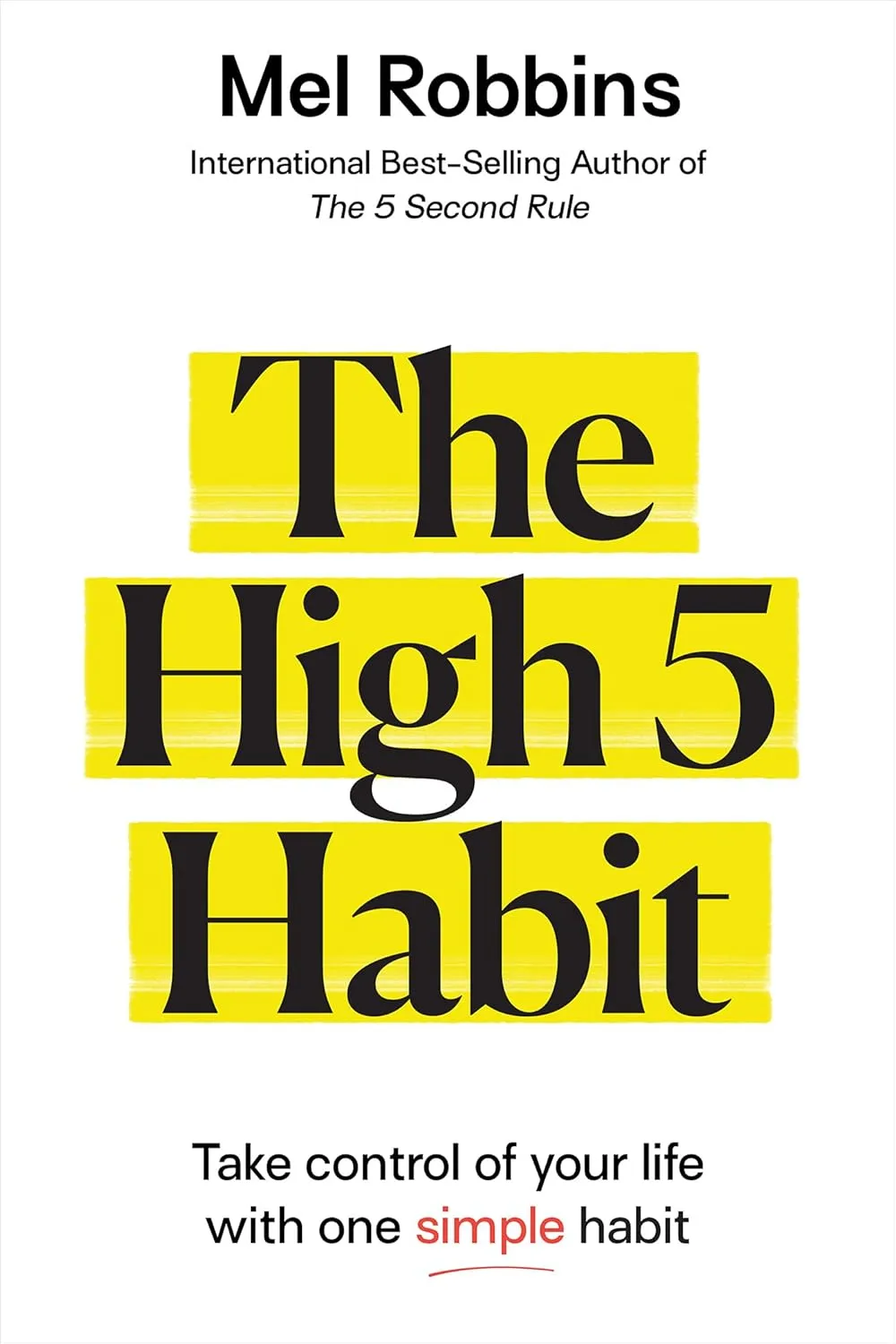Overview
“Build a Business Not a Job: Grow Your Business & Get Your Life Back” is a transformative business guide that teaches entrepreneurs how to create scalable, systems-dependent businesses rather than being trapped in self-employment. The book addresses the critical distinction between owning a job (where you’re indispensable) and owning a business (which can operate and grow without your constant presence).
Finkel, co-author with Stephanie Harkness, draws from his experience as a serial entrepreneur and founder of Maui Mastermind to provide practical strategies for building businesses that can be sold, scaled, or owned passively. The book serves as a roadmap for business owners who want to work ON their business rather than IN it.
Key Takeaways
| Element | Details |
|---|---|
| Core Philosophy | Transform from job-dependent to systems-dependent business |
| Target Problem | Business owners trapped working IN their business vs ON it |
| Primary Goal | Create a business that operates without owner’s daily involvement |
| Main Strategies | Systems, delegation, automation, and team development |
| Outcome Options | Build to sell, scale, or own passively |
| Co-Author | Stephanie Harkness |
| Publisher Focus | Practical implementation over theory |
| Business Model | Scalable, profitable, and owner-independent operations |
Book Structure
Build a Business Not a Job follows a logical progression from diagnosis to implementation:
Part I: The Problem – Identifies why most business owners are actually self-employed and trapped in their businesses, working harder but not necessarily smarter or more profitably.
Part II: The Solution Framework – Introduces the fundamental shift in thinking required to build systems-dependent businesses and the key principles that separate scalable businesses from glorified jobs.
Part III: Implementation Strategies – Provides detailed methodologies for creating systems, delegating effectively, building teams, and developing processes that allow the business to function independently.
Part IV: Advanced Scaling – Covers advanced strategies for growing the business, preparing for sale, or transitioning to passive ownership while maintaining profitability and growth.
About the Author
David Finkel is a serial entrepreneur who has launched, grown, and sold numerous businesses, and is also a Wall Street Journal and Business Week best-selling author of over 40 business books and courses. As founder of Maui Mastermind, Finkel has learned from mistakes that taught him to focus and delegate ownership to others.
Finkel’s expertise comes from real-world experience building and scaling multiple businesses across various industries. His approach combines practical strategies with proven systems, making him a trusted advisor to thousands of business owners worldwide. His mission through Maui Mastermind is to help business owners build more profitable businesses and take back control of their lives.
Why This Book Resonates
Build a Business Not a Job strikes a chord with business owners for several compelling reasons:
Universal Pain Point: Most entrepreneurs start businesses to gain freedom but end up more trapped than when they were employees, working longer hours with more stress and responsibility.
Practical vs. Theoretical: Unlike academic business books, Finkel provides actionable strategies based on real-world experience building and selling multiple businesses.
Clear Distinction: The book clearly differentiates between being self-employed (owning a job) and being a business owner (owning a scalable asset).
Multiple Exit Strategies: Whether readers want to sell, scale, or transition to passive ownership, the book provides pathways for each goal.
Systems-Based Approach: Focuses on creating reproducible systems rather than relying on the owner’s constant presence and decision-making.
Ideal Audience
- Small to mid-sized business owners feeling trapped in their businesses
- Entrepreneurs working more than 50+ hours per week in their companies
- Service-based business owners who believe their expertise makes them irreplaceable
- Family business owners wanting to create succession plans
- Consultants and professionals seeking to scale beyond trading time for money
- Business coaches and advisors looking for systematic approaches to help clients
- Anyone considering selling their business in the future
- Solopreneurs ready to hire their first employees and build teams
Memorable Quote
“The goal isn’t to create a business that needs you; the goal is to create a business that works so well it doesn’t need you.”
This quote encapsulates the fundamental shift in thinking that Finkel advocates – moving from being indispensable to being optional in your own business operations.
Central Themes
| Theme | Description |
|---|---|
| Systems Over Self | Creating processes and systems that replace owner dependency |
| Delegation and Trust | Learning to delegate meaningful responsibilities to capable team members |
| Process Documentation | Recording and standardizing all business processes for consistency |
| Team Development | Building and training teams capable of operating independently |
| Financial Independence | Creating passive income streams through business ownership |
| Scalability | Designing business models that can grow without proportional owner involvement |
| Value Creation | Building businesses as valuable assets rather than glorified jobs |
| Leadership Evolution | Transitioning from doing the work to leading and guiding others |
Core Methodologies
The Business Systems Triangle: Finkel introduces a framework covering People Systems (hiring, training, managing), Process Systems (workflows, procedures, standards), and Technology Systems (tools, automation, integration).
The Delegation Hierarchy: A systematic approach to gradually transferring responsibilities, starting with tactical tasks and eventually including strategic decision-making.
The Value Builder Framework: Methods for increasing business value through reduced owner dependency, documented processes, and predictable revenue streams.
The Scale Preparation Checklist: Essential elements needed before attempting to scale, including systems documentation, team capabilities, and financial controls.
Implementation Strategies
Start Small, Think Big: Begin by systematizing one department or process completely before expanding to others, proving the concept works in your specific business context.
Document Everything: Create detailed process maps, checklists, and standard operating procedures for all business functions, making knowledge transferable rather than trapped in your head.
Hire for Systems: Recruit and train employees who can follow and improve systems rather than just complete tasks, building a culture of continuous improvement.
Measure and Monitor: Implement key performance indicators and dashboards that allow you to oversee business performance without micromanaging daily operations.
FAQ
Q: Is this book only for businesses ready to sell? A: No, the strategies apply whether you want to sell, scale, or simply gain more freedom while maintaining ownership.
Q: Can service-based businesses really become owner-independent? A: Yes, the book specifically addresses this concern and provides examples of professional services firms that have successfully systematized their operations.
Q: How long does it typically take to implement these changes? A: Implementation varies by business size and complexity, but most owners see significant improvements within 6-12 months of consistent application.
Q: Do I need a large team to implement these strategies? A: No, the book includes strategies for solopreneurs and small teams, with scalable approaches that grow with your business.
Q: What if my industry is too specialized or unique? A: Finkel challenges the limiting belief that expertise-based businesses can’t scale, providing direct counter examples across various industries.
Q: Is this just theory or are there practical tools? A: The book emphasizes practical implementation with worksheets, checklists, and step-by-step processes rather than abstract concepts.
Business Impact Areas
Operational Efficiency: Streamlined processes reduce waste, improve quality, and increase productivity without requiring more owner involvement.
Financial Performance: Systems-dependent businesses typically achieve higher profit margins and more predictable revenue streams.
Team Empowerment: Employees become more capable and confident when working within well-designed systems, reducing turnover and increasing job satisfaction.
Owner Freedom: Business owners can take vacations, pursue other interests, or start additional ventures without daily business operations suffering.
Business Valuation: Companies with documented systems and reduced owner dependency command higher valuations when sold.
Final Thoughts
Build a Business Not a Job addresses one of the most common challenges facing entrepreneurs: the trap of creating a business that becomes more demanding than employment ever was. Finkel’s systematic approach provides a clear roadmap for business owners who want to reclaim their time and freedom while building more valuable, scalable enterprises.
The book’s strength lies in its practical nature – rather than philosophical discussions about entrepreneurship, it provides concrete steps and proven methodologies for creating systems-dependent businesses. Finkel’s experience building and selling multiple businesses gives credibility to his recommendations, while his clear writing style makes complex business concepts accessible to owners at any level.
For business owners feeling overwhelmed by their daily responsibilities or those planning eventual exit strategies, this book offers hope and a proven path forward. The transformation from job owner to business owner isn’t just about making more money – it’s about creating the freedom and flexibility that originally motivated the entrepreneurial journey.
Whether your goal is to sell your business, scale it dramatically, or simply work fewer hours while maintaining profitability, Build a Business Not a Job provides the blueprint for achieving true business ownership rather than disguised self-employment.
The book serves as both an inspiration and a practical guide, reminding readers that with the right systems and mindset, any business can evolve from being owner-dependent to owner-independent, creating value for all stakeholders while giving entrepreneurs back their lives.
Related Reading
- The E-Myth Revisited by Michael Gerber – foundational work on working ON vs IN your business
- Traction by Gino Wickman – complementary system for organizing and running businesses
- The Automatic Millionaire by David Bach – personal finance strategies for business owners
- Built to Sell by John Warrillow – specific focus on preparing businesses for sale
- Other David Finkel books including The Maui Millionaires series







